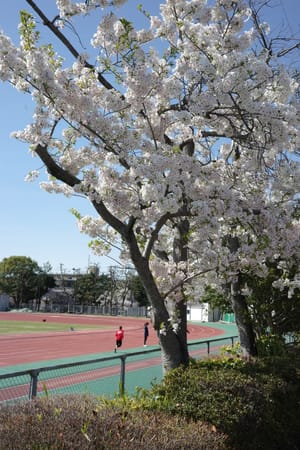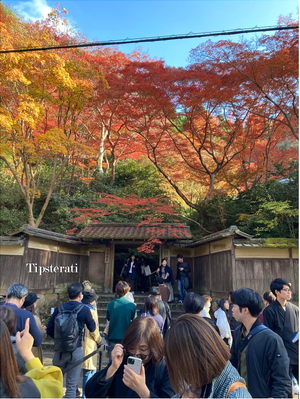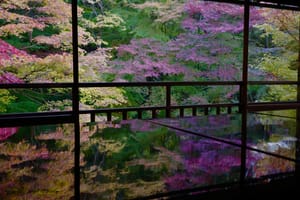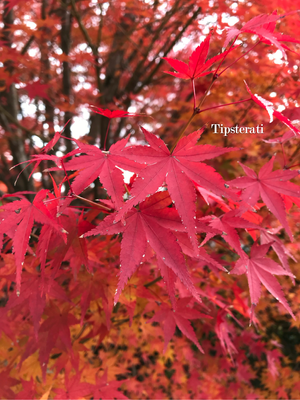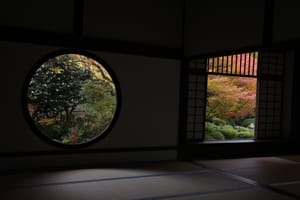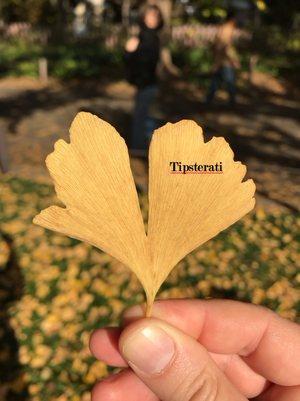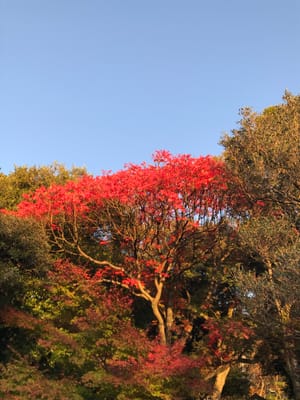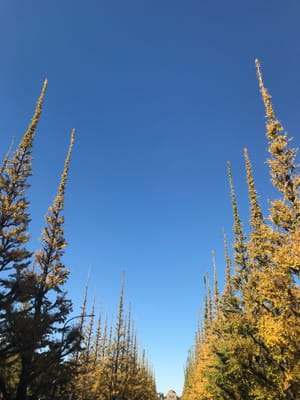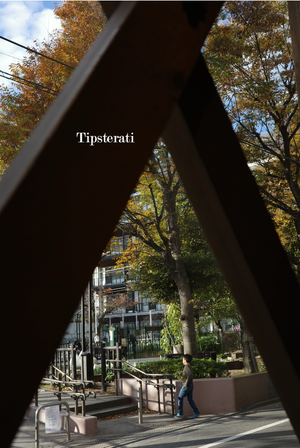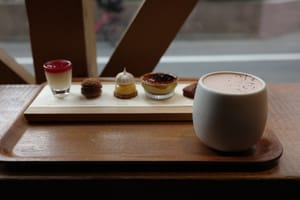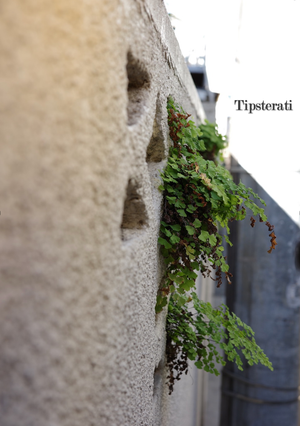
Hirosaki Neputa—A Few Impressions
We arrive near sunset. The sky a pageant’s palette: lilac, salmon, lemon. Participants and spectators search out their place beneath the pastel glow.
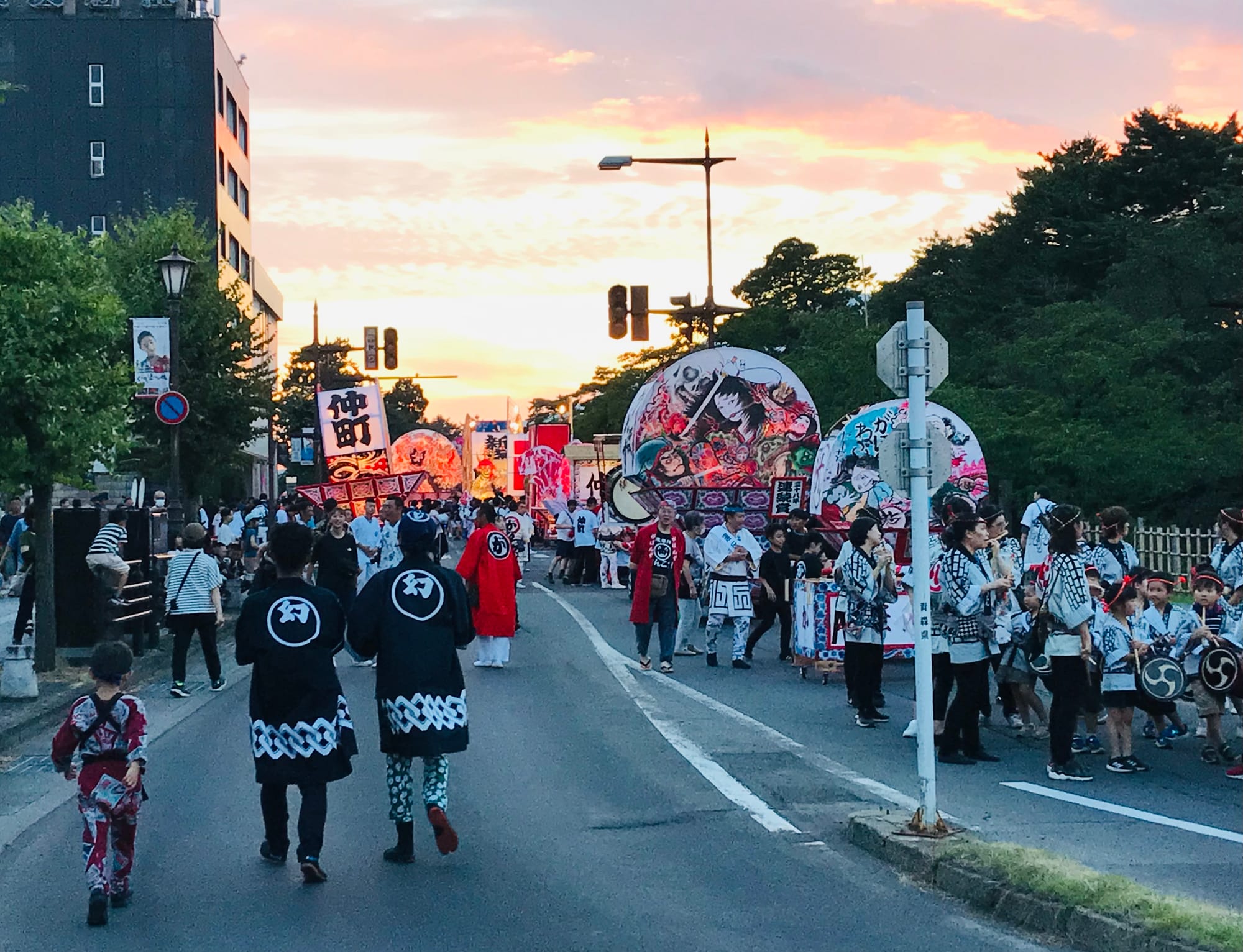
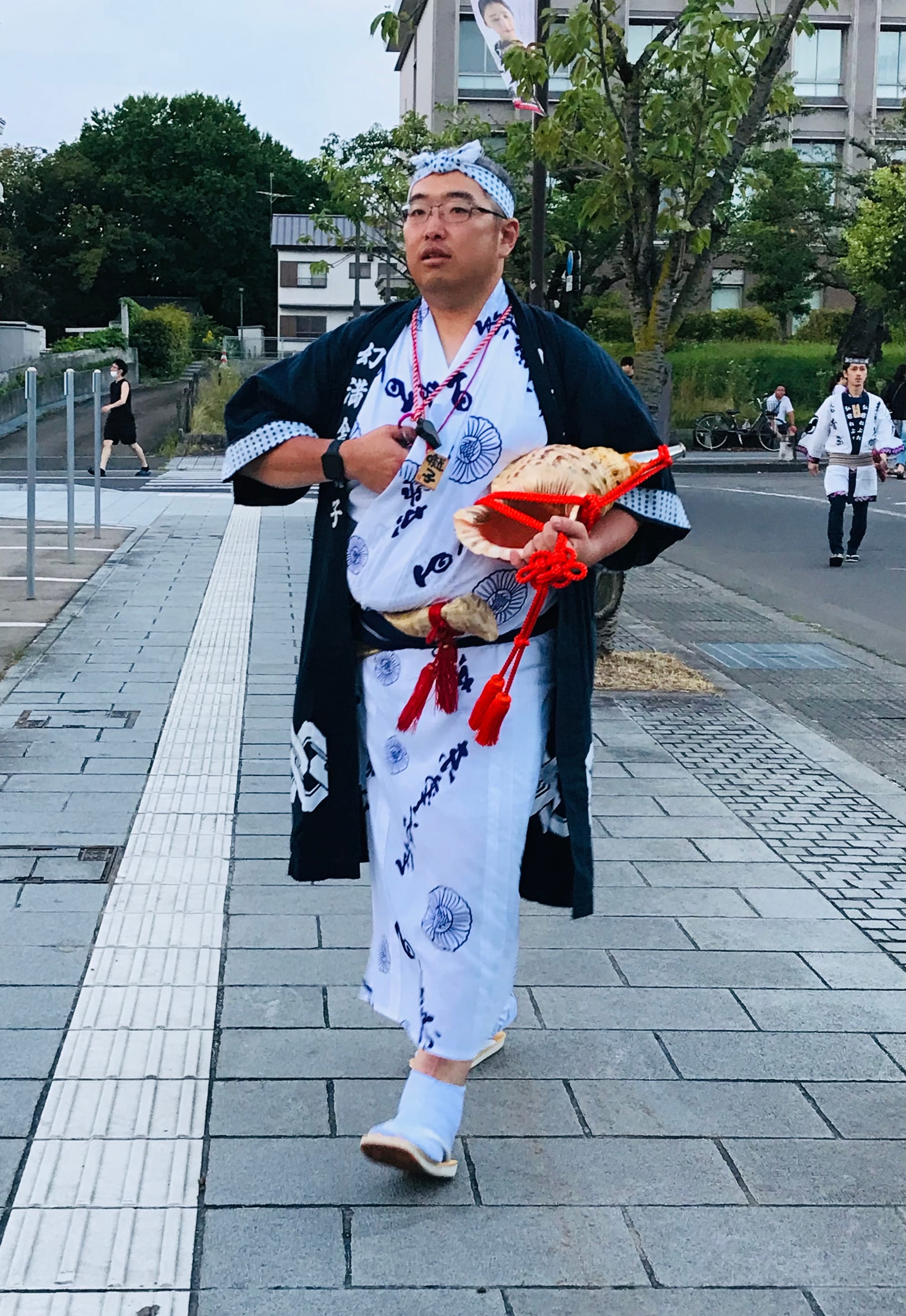
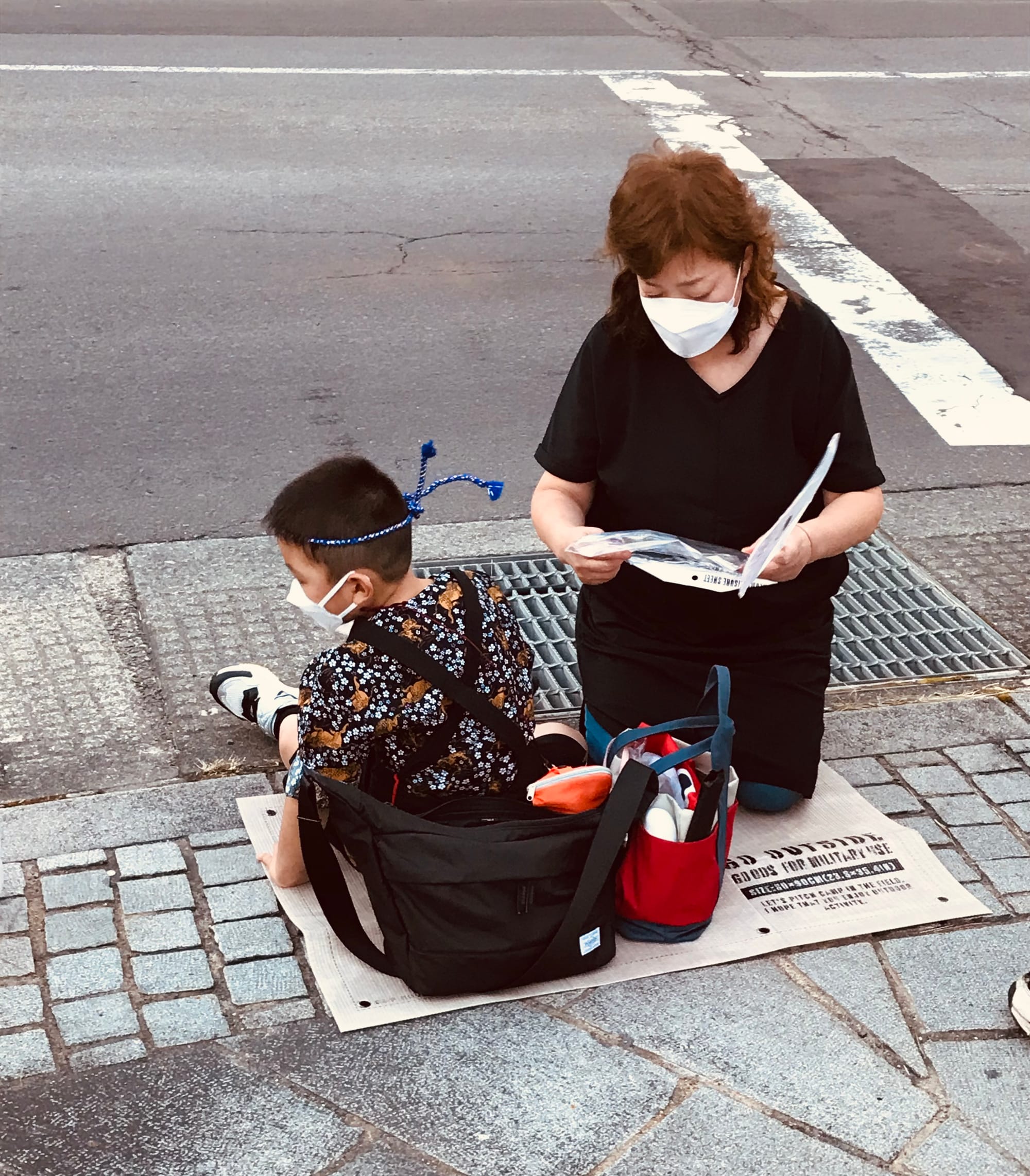
©F.L. Blumberg 2024
The young bide their time, some chatting and laughing, some practicing a note or two.
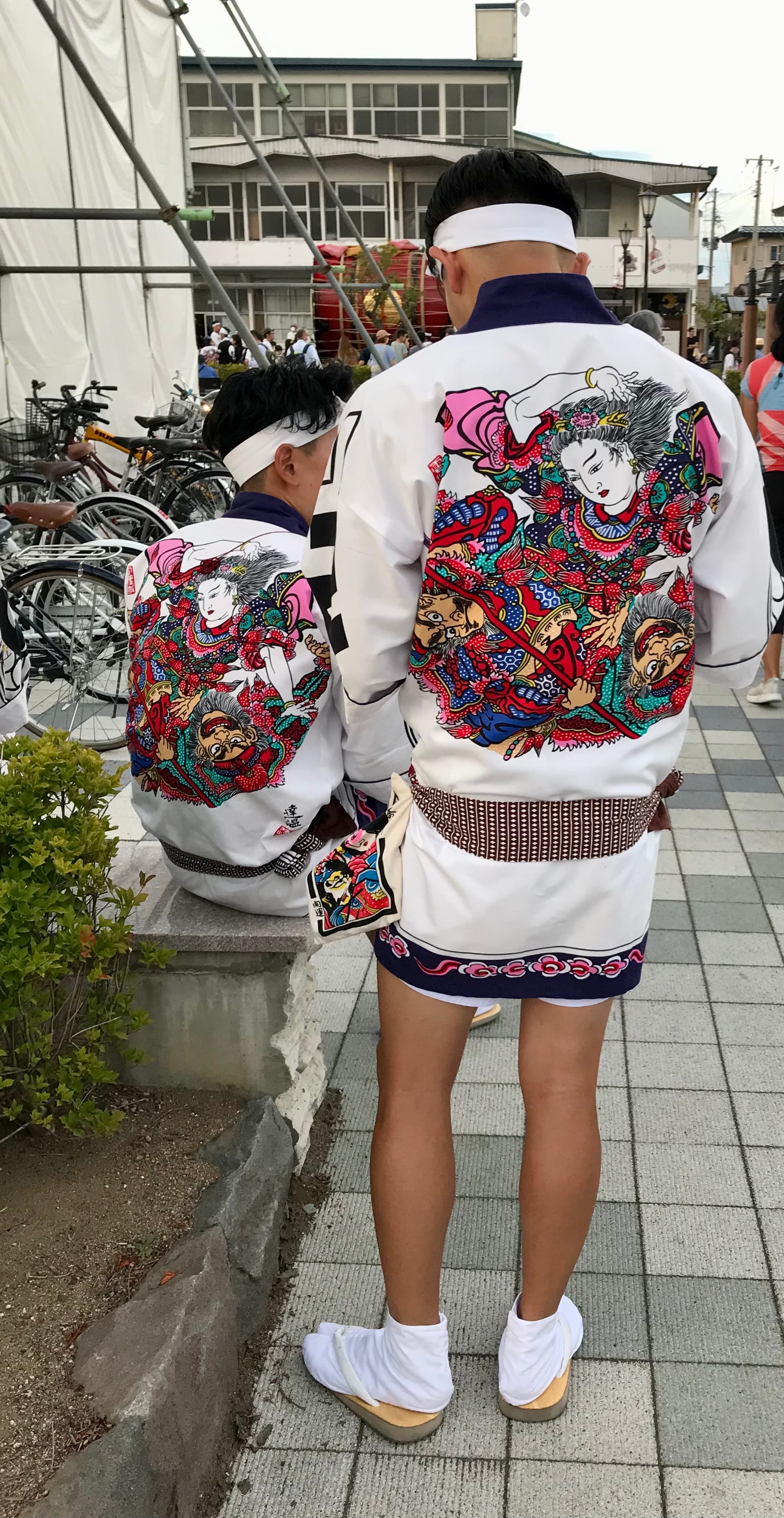
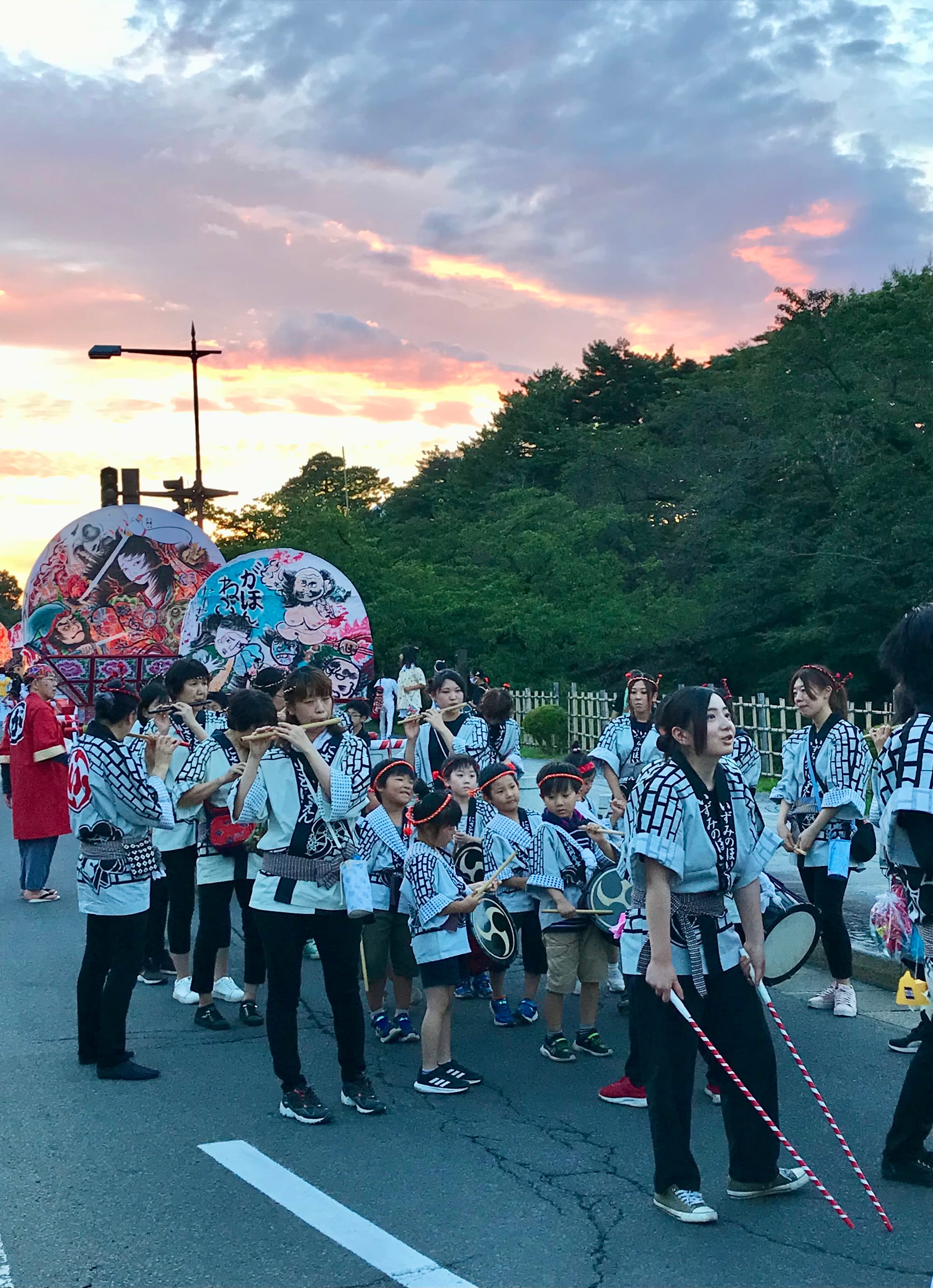
©F.L. Blumberg 2024
Teenagers straddle an odaiko gilded with the city’s manji emblem and one waggishly readies to mock-strike it. In a few minutes and in earnest, they will commence the festivities and lead the procession.
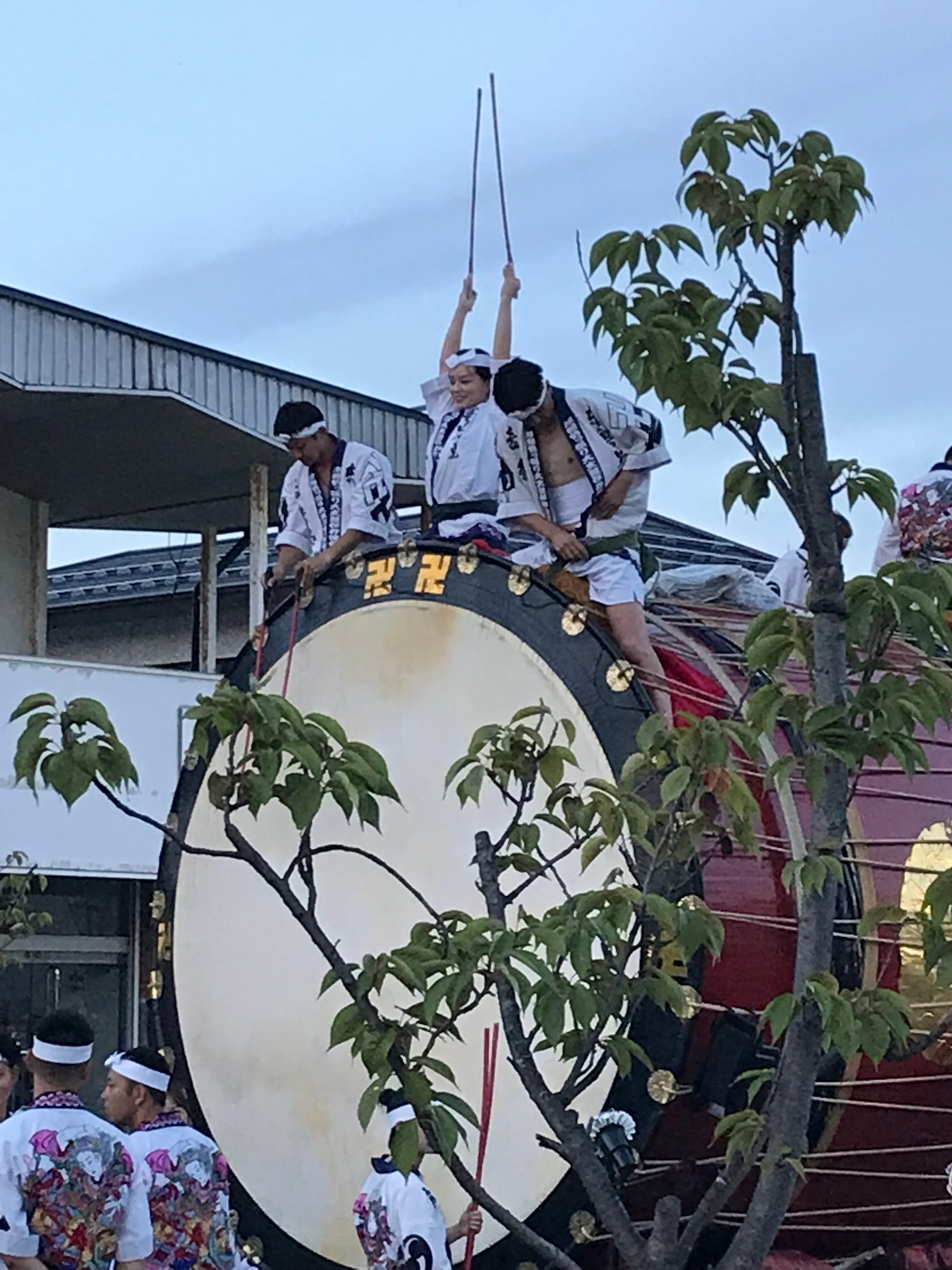
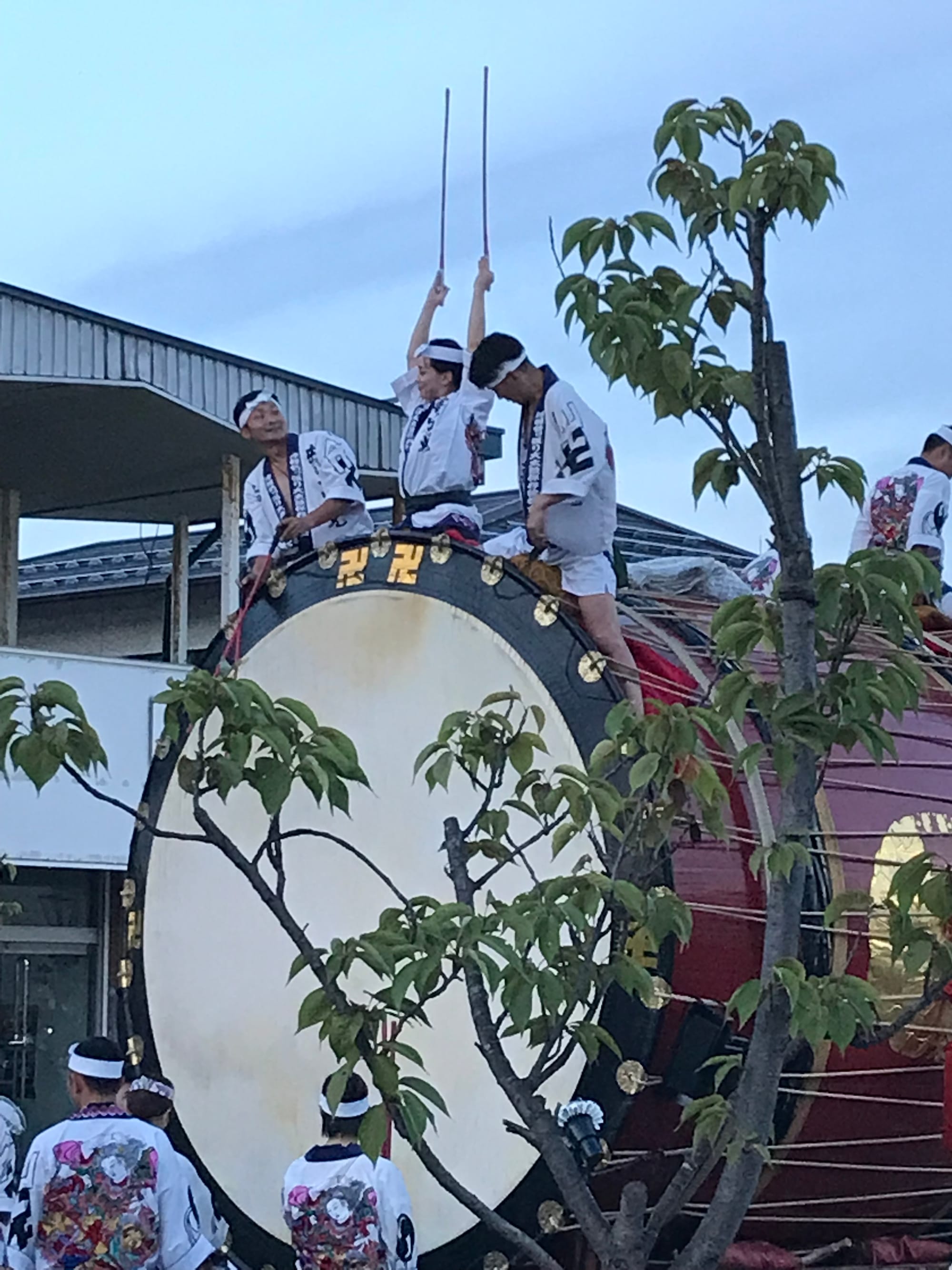
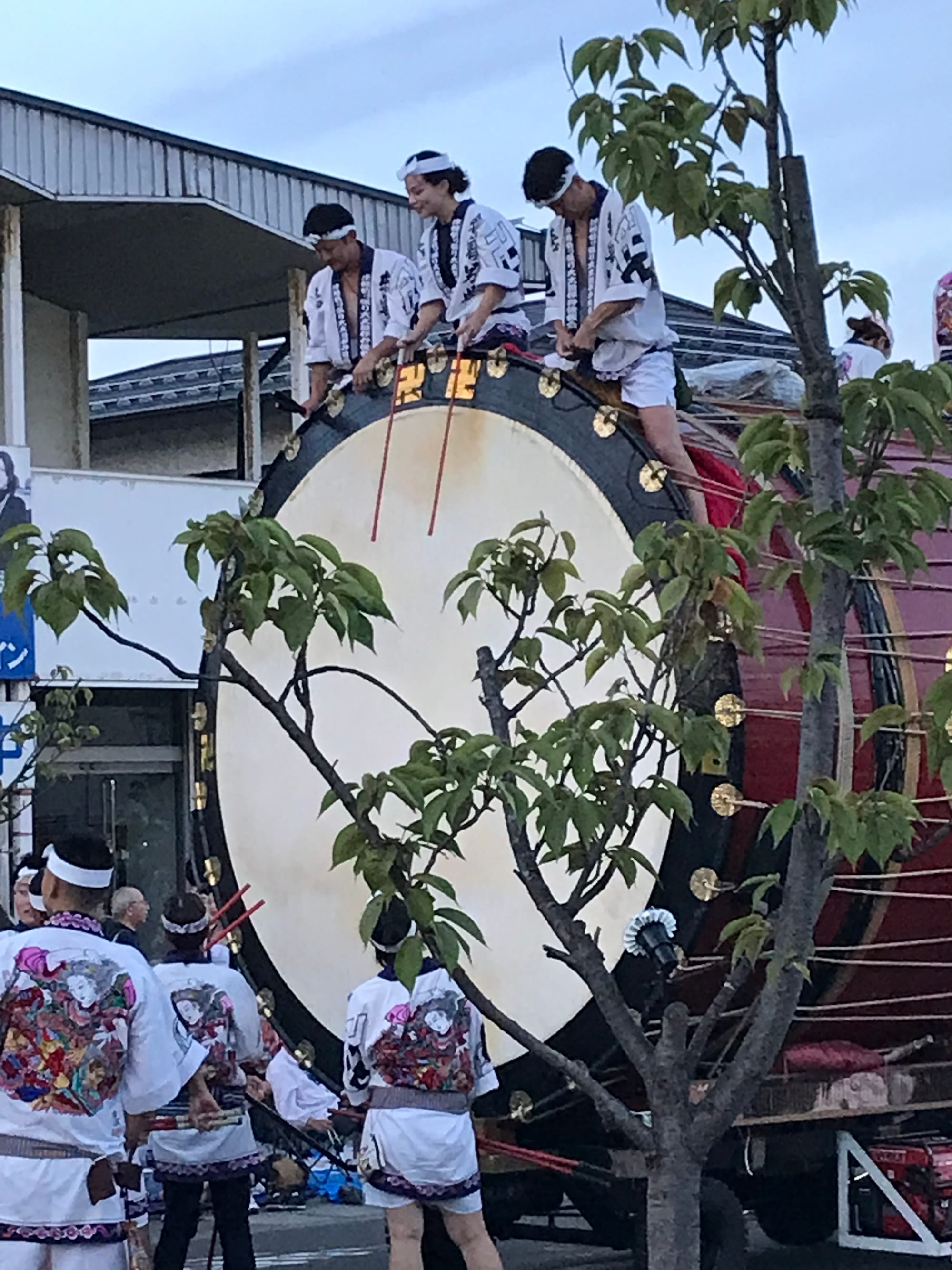
©F. L. Blumberg 2024
Scores of crows take flight, heralding the night.
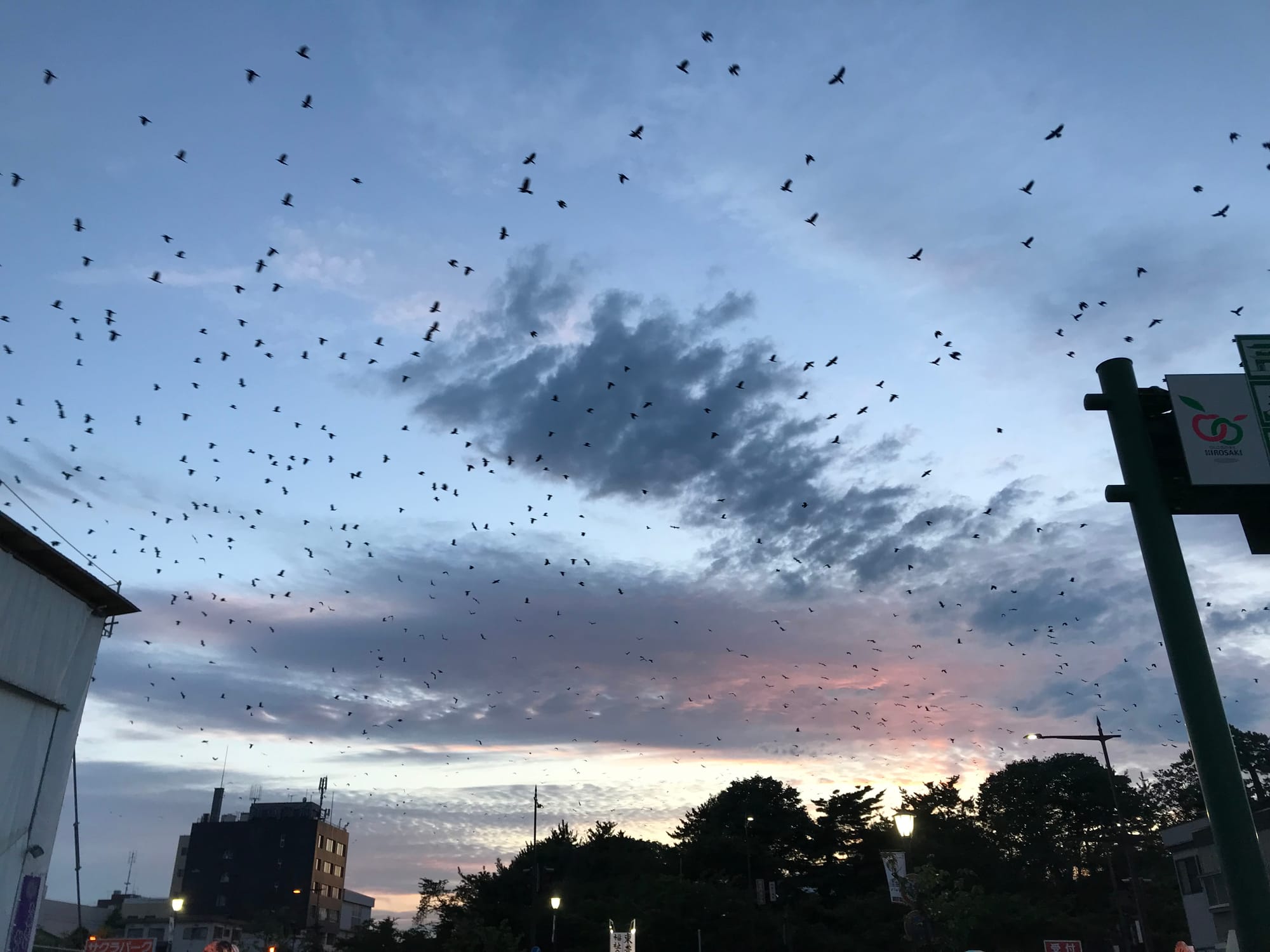
The beat begins, a simple compelling rhythm kept up by each group passing by. A flute melody floats above the drumbeat, adding sweet refinement to the primitive percussion.
© F.L. Blumberg 2024
Then comes the rousing parade of floats. Gigantic fan-shaped washi-covered lanterns rest in cradles adorned with a pattern of peonies, the flowers that represent the Tsugaru clan which ruled Aomori prefecture during the Edo period. The front side depicts bold, tumultuous, comic-book-style scenes of furious warriors in action against foes—mortal and supernatural. This is known as the kagami-e (‘mirror picture’) and it illustrates stories taken from a range of venerated sources, historical and literary, Japanese and Chinese.
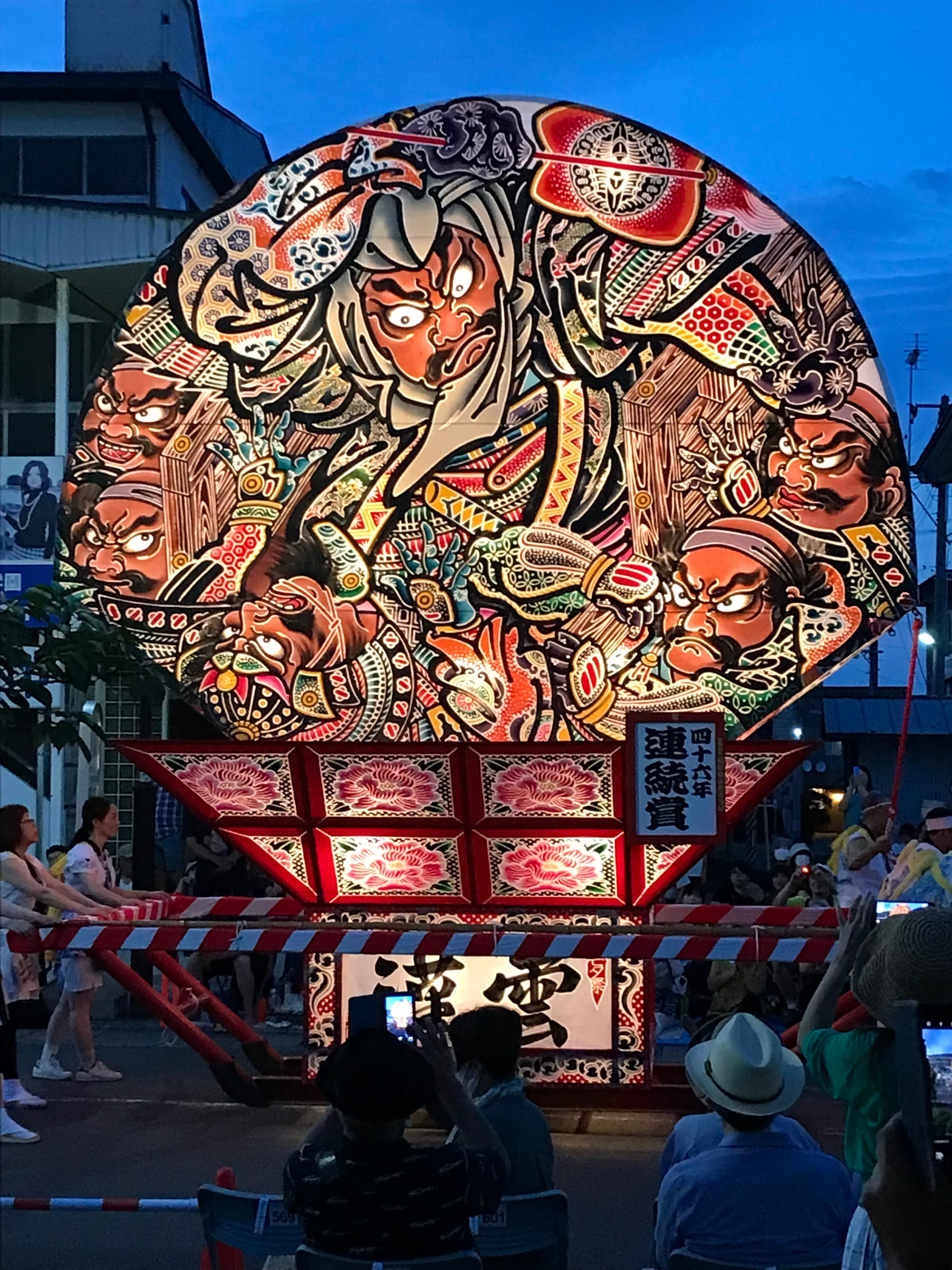
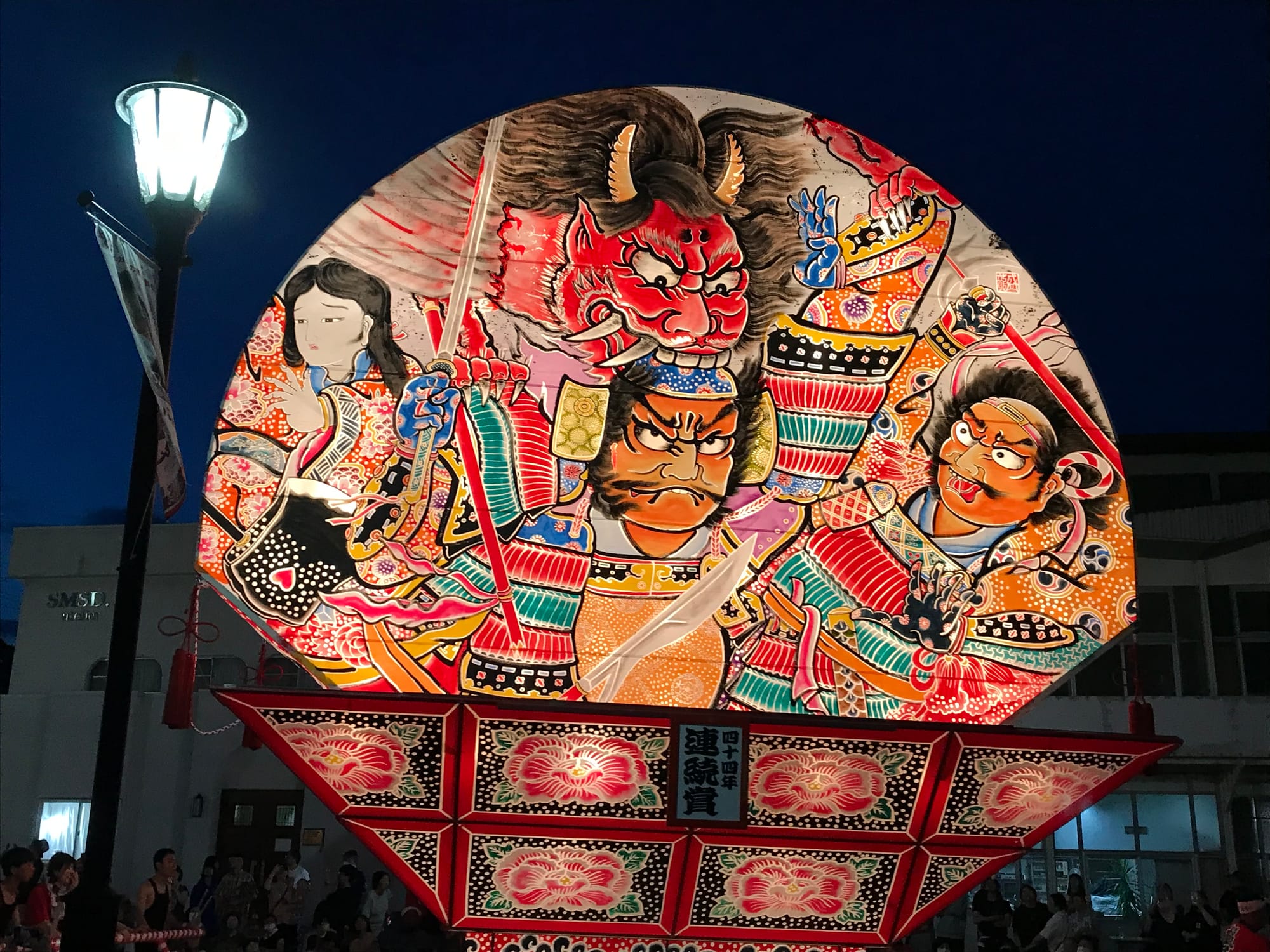
With rope, a team walks the float down the thoroughfare, pausing to spin the rig around, now presenting the back side, the miokuri-e (‘farewell picture’), which reveals an image of feminine beauty. Having seen her beloved off, she is wistful and perhaps anxious about what battle might do to him. Variously a raging and frightful, or plaintive and graceful, scene surrounds her.
© F.L. Blumberg 2024
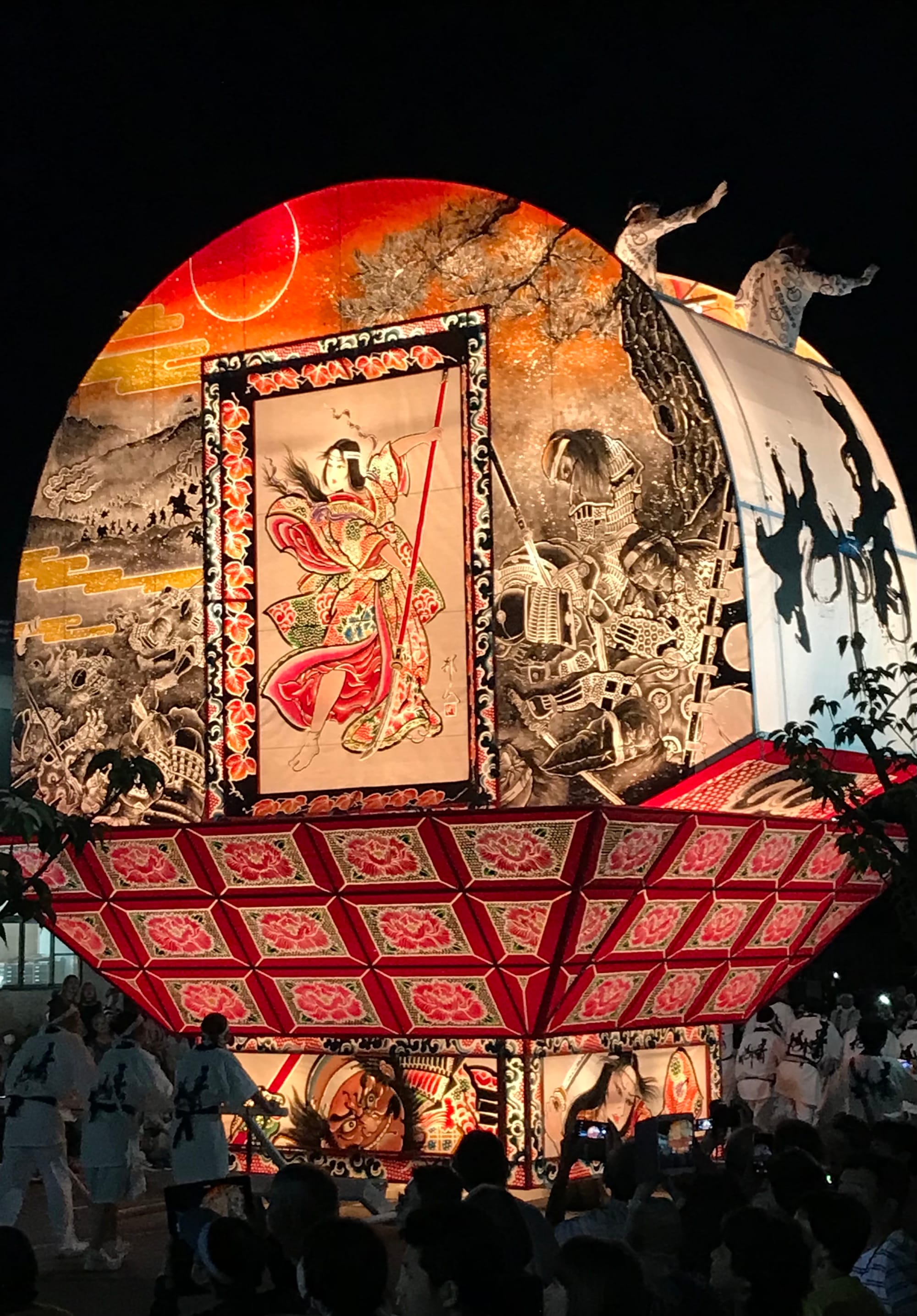
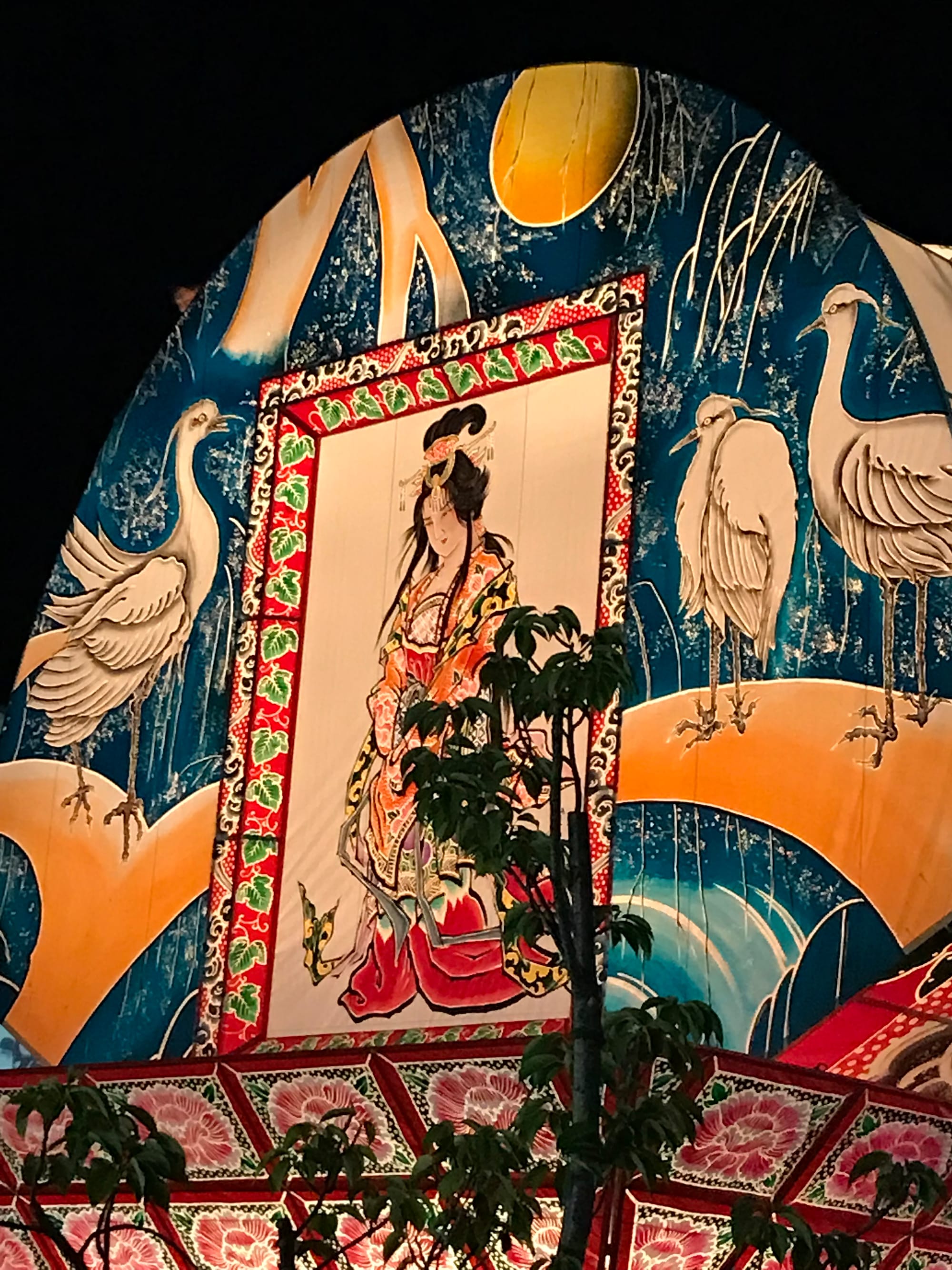
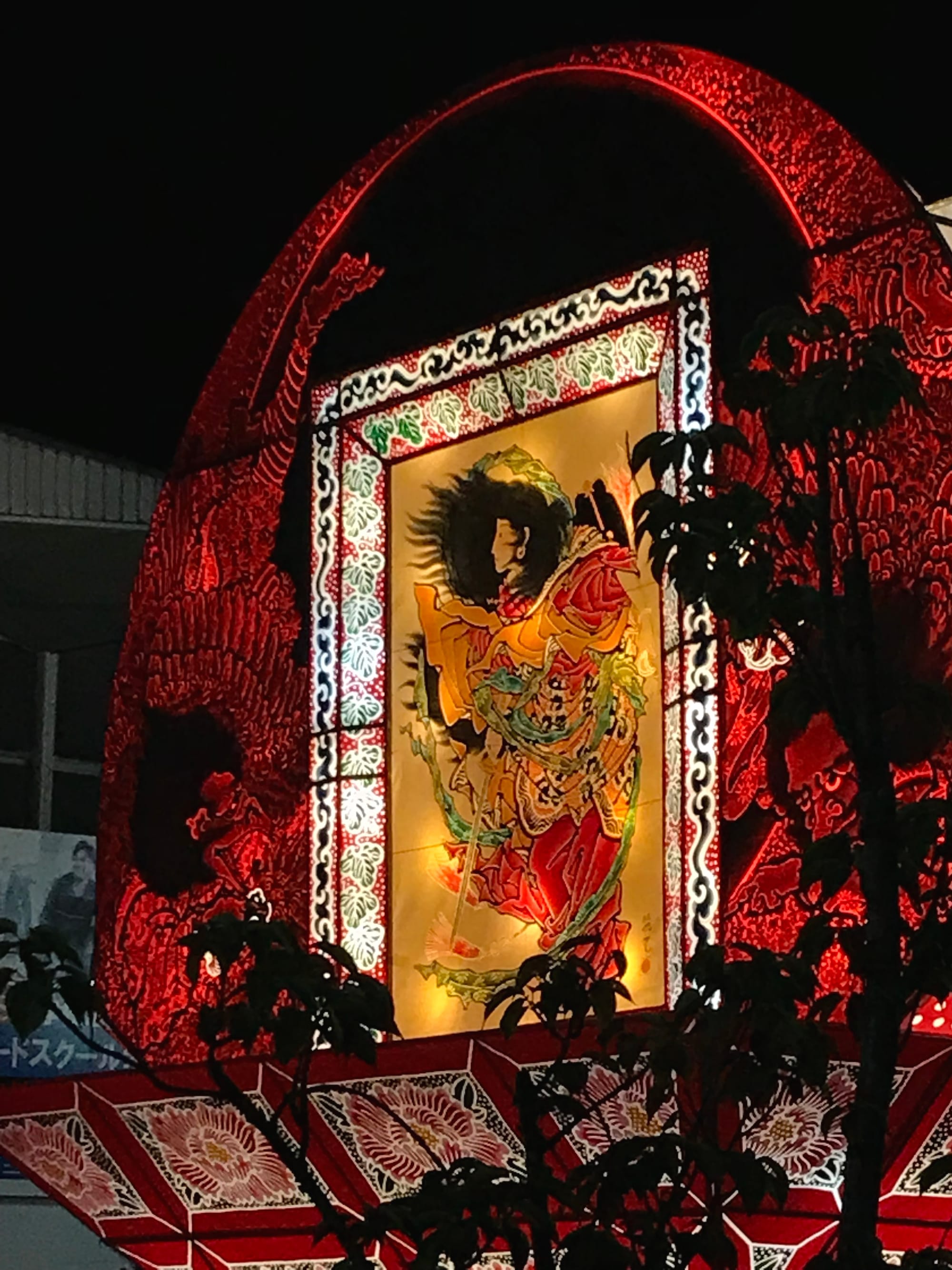
©F.L. Blumberg 2024
As the illuminated machine revolves, its creators atop wave to the cheering crowd. A delightful moment of appreciation! When the float has whirled a circle round, it is time to march ahead before performing again at the next stop.
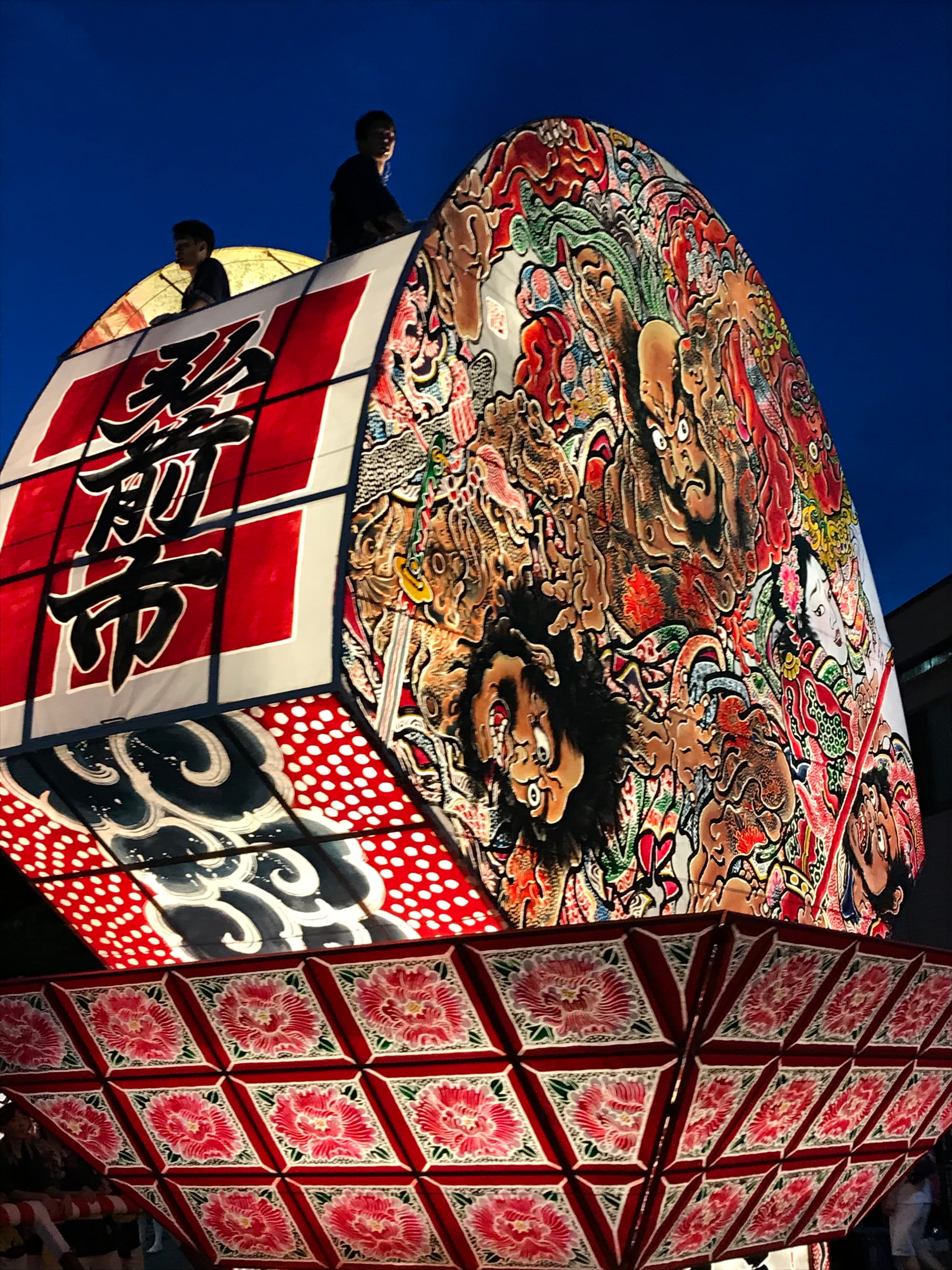
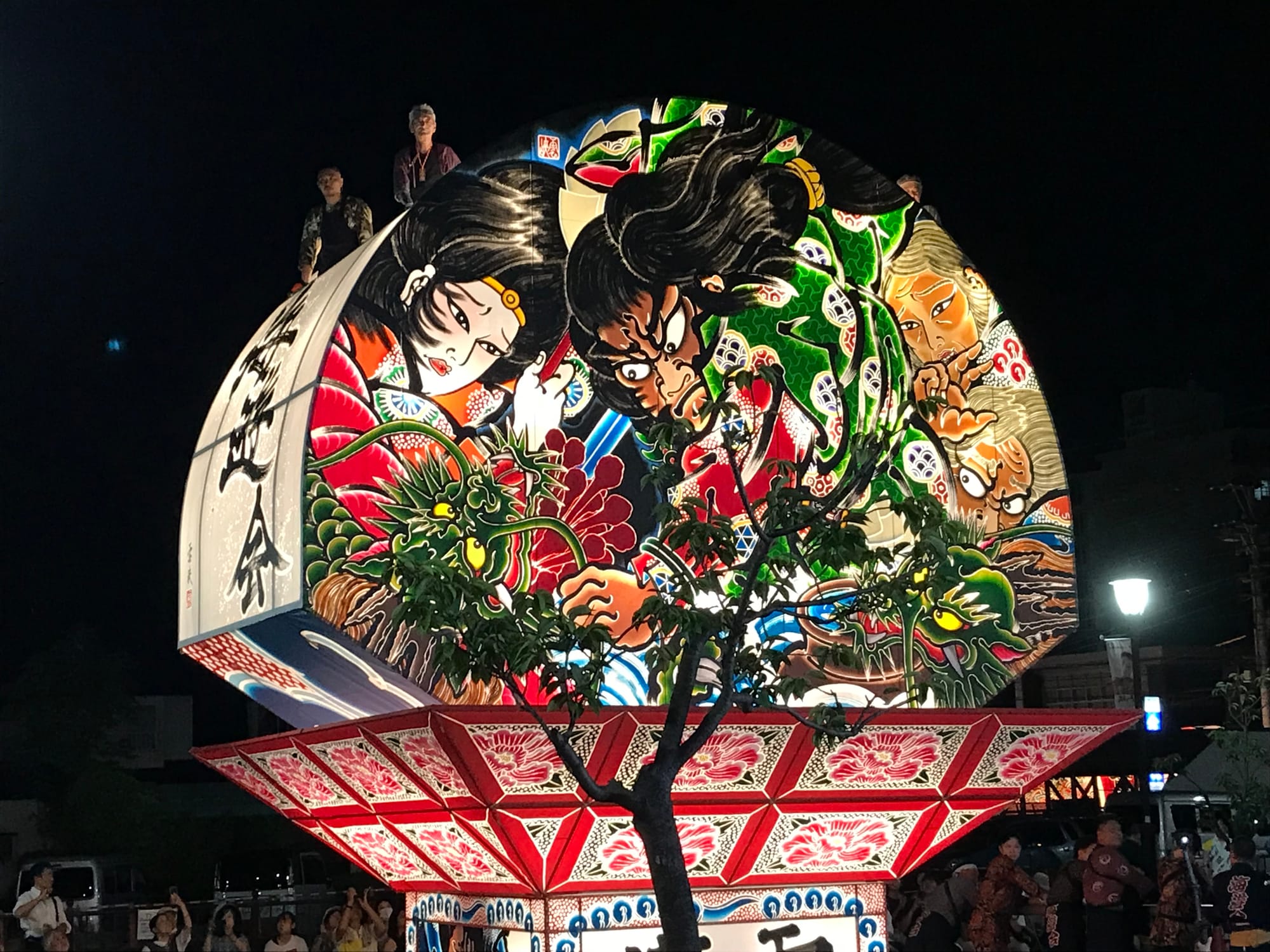
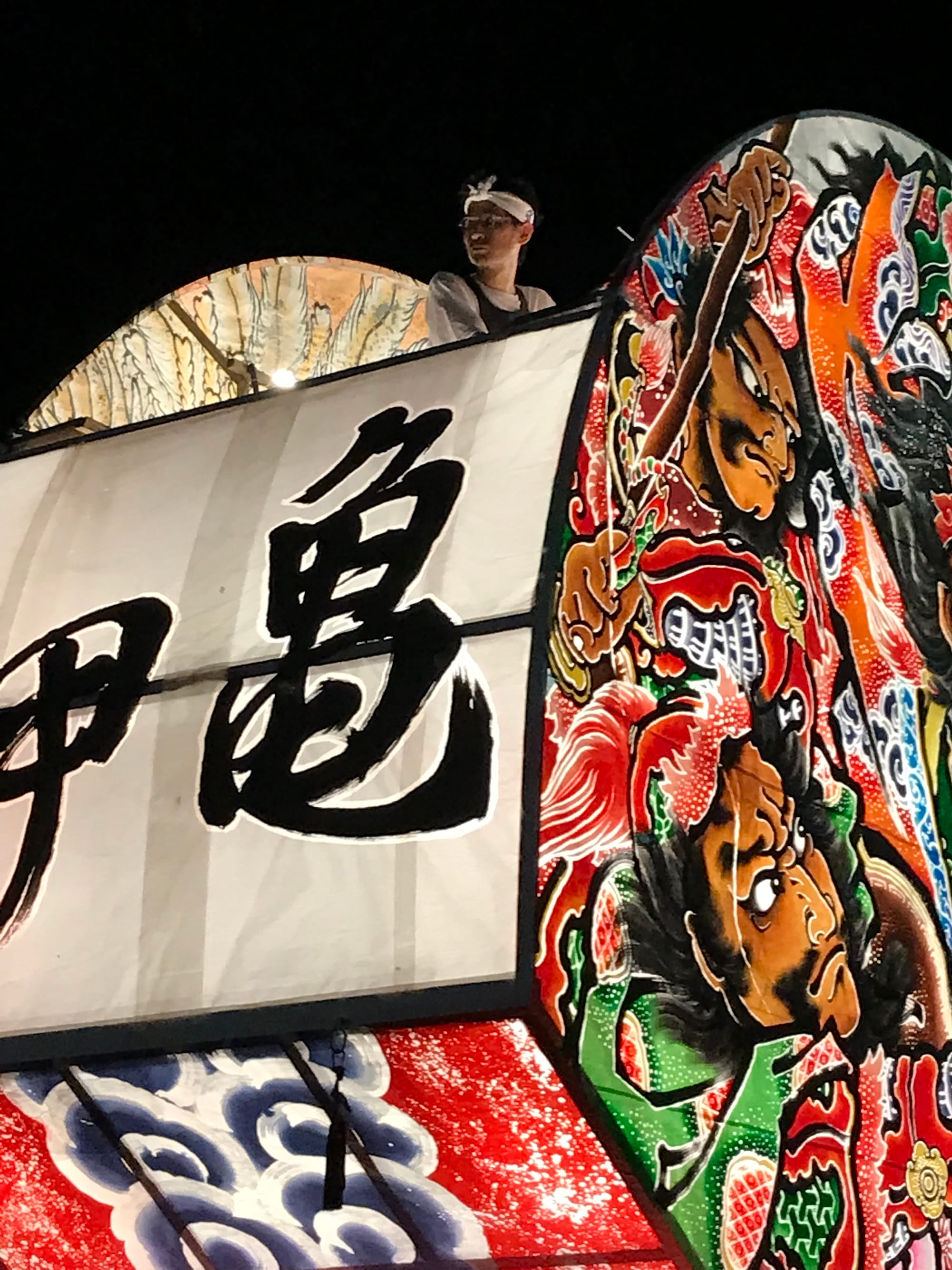
©F.L. Blumberg 2024
All of a sudden, and most unexpectedly for the first-time attendee, a cartoonishly guttural rallying call issues from a lo-fi loud-hailer. Ya ya doh! Yaaa yaaa doooh! The original purpose of the Neputa festival, according to the popular view, was to drive away demons that make farmers drowsy during the sultriest days of summer, in turn encouraging them to bring forth a rich fall harvest. This would certainly do the trick.
© F.L. Blumberg 2024
Tonight in Hirosaki children lead the way. What a treat: to shout in sing-song at all the adults and receive praise for keeping them awake! Ya ya doh! Yaaa yaaa doooh! A little boy takes the mic and sounds gravelly and dramatic, as though he is 60 and has been auctioneering his whole life. Ya ya doh! Yaaa yaaa doooh!
Though the shouted slogan is rough, it is also musical and fun and catchy. Who could resist the opportunity to join in? A mother jauntily pulls a red wagon in which her toddler son sits. She will take the rare chance to indulge in a bit of merrymaking. Ya ya doh! Yaaa yaaa doooh!
Hirosaki is a small city. A good part of the year must have gone into this holiday week. By all accounts, the Nebuta festival at Aomori City (there transliterated with a ‘b’) is grander and more boisterous, with three-dimensional, ship-sized floats and haneto, dancers decked out in bells and flower-stuffed straw hats who inspirit the float teams and crowd alike. But there are different ways to be wowed and Hirosaki puts on something no less astonishing: a spectacle that one moment looks larger than life, and the next, returns to a perfectly human scale. Ya ya doh! Yaaa yaaa doooh!
